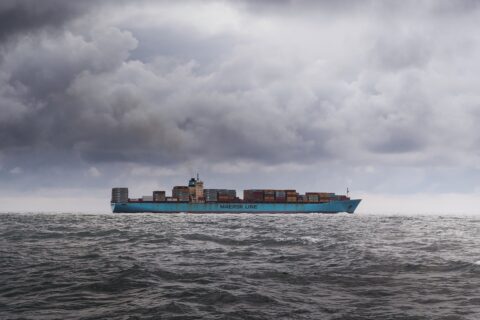You would have heard about LCL and FCL shipping if you are a shipper. One of our previous articles outlines the details about LCL shipping, in this post, we will highlight all about FCL shipping and when should you choose it.
What is FCL Shipping?

FCL is one of the most common options for shipping, and it’s a great way to save money when you have large amounts of cargo. If you’re looking for more space or want your shipment to not be split with other shippers, FCL might be the right choice for you.
FCL shipping is more to the point than LCL, since they do not require a logistics partner or freight forwarder to consolidate shipments before loading into the container. This also means that deconsolidation will happen at either destination port or arrival port when it arrives.
Breaking FCL Shipment process, step by step:
For instance:
- If you choose door-to-door shipping, your freight forwarder / agent will drop the container to the picking point where your cargo can be loaded and sealed in the shipping container.
- This can be done in 2 ways:
- You have your agent drop the container at the pickup location and ask him to collect it in a few days – this gives you enough time to load the container, but of course, it will be expensive.
- You have your agent or carrier drop the container at the pickup location, load it in an agreed time window (mostly a few hours) and let the carrier, mostly a truck, take it away to the port of loading. While option 2 is cost-effective, it is time bound. In case you require more time than agreed, surcharges may apply.
- Once the container is loaded and sealed, by whichever option you choose, it is hauled away to the port of loading, where it will be loaded in the vessel booked by you or your freight forwarder.
- Once it reaches its port of destination/ discharge, it will be offloaded from the vessel, sent for clearance and hauled for transporting it to your final destination.
When Would FCL Shipping Be Right for You?
It goes without saying that in order to ship your goods internationally, you need a large volume. If you have 6 or more pallets and require 20 ft of space per pallet (or 12 ft if using 40 ft containers), then FCL shipping is the best option for international shipments.
Less Freight Handling, More Safety: FCL shipping is the most economical option for cargo when air freight isn’t an option. It minimizes damage, loss and contamination in shipments because goods remain packed or sealed from origin to destination. This service can be considered if you’re worried about your cargo getting damaged en route as well!
Time at Hand is Less: If your cargo is not large enough to fill the entire container, or if you have a limited time frame for shipment, then FCL shipping can be an option. While it does cost more than LCL shipping and take longer to deliver, it doesn’t pose any risk compared with LCL.
While FCL is not a direct comparison to air freight, it can be said that if the volumes are big enough, then FCL is more cost-effective than air freight.
Choose ProConnect Integrated Logistics for your FCL Shipments
ProConnect Integrated Logistics is a third-party logistics company and a freight forwarder specializing in facilitating LCL and FCL shipments all across the world. With our extensive network of agents, relationship with major shipping lines and a dedicated team, we ensure you receive best of the services and most competitive rates. In addition to this, we also provide custom clearance, warehousing and distribution and other value-added services. For more information on our service and rates, enquire with us.





 APP DOWNLOAD
APP DOWNLOAD